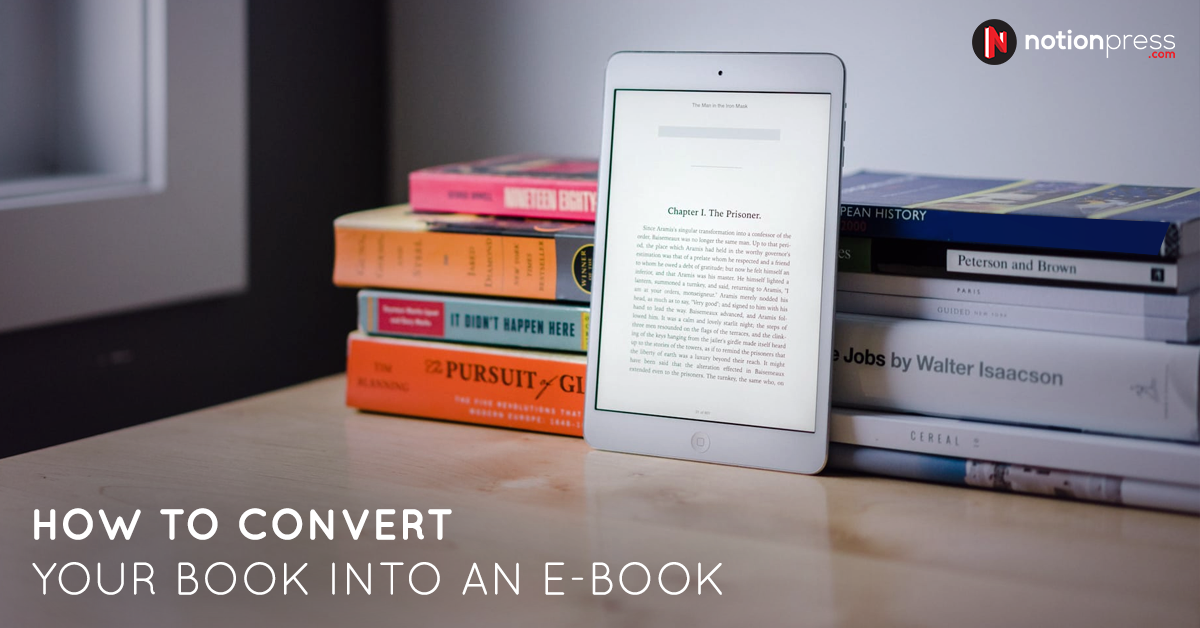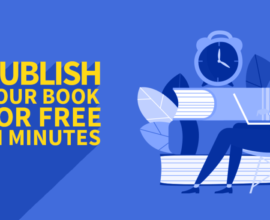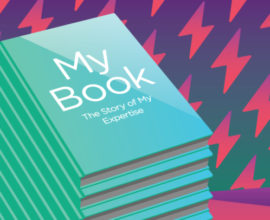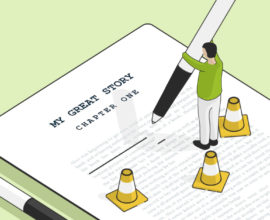How to Convert Your Book into an Ebook: Useful Conversion Tools and Apps
No matter the generation gap, reading remains to be a habit that is timeless. Perhaps, the one thing that has changed, or is slowly changing with time, is the way people are reading books. The classic paperback or hard-cover version of books continues to have a steady interest among avid readers, but for a broader audience, eBooks are becoming the go-to option. From first time authors to world-renowned masters of literature, everyone has realised the potential of the digital space, and they are now making efforts to convert their books into eBooks. What has made the literature world go soft on technology? Let’s find out.
EBook sales are generating more money
Amazon’s introduction of Kindle, the eBook reader, opened the floodgates to an entirely new and vaster audience of readers. The ease of access and the multitude of features you could use with Kindle enhanced the rather simple reading experience you get with a paperback book. This ultimately lead to more people, avid readers or not, purchasing eBooks. Considering the massive amount of space, you get in a digital library, and the comparatively lower pricing, the audience base for eBooks grew tenfold. So, for authors old and new, having a digital version of their books meant generating more money over shorter time periods.
EBooks have a more accessible marketplace
Gone are the days when you had to endlessly search for your favourite book, only to be told by local bookstores that it hasis either out of stock, borrowed or has no tie-ins with the particular bookstore. The online marketplace for books has no such pitfalls; you can get a copy of your favourite book in digital format simply by pressing a few buttons. Authors who write about particular subjects or who write for a strict audience base find eBooks easier, as it helps them reach their Ttarget Aaudience even if they live hundreds of kilometres away. The internet has made the world a smaller place, hence making eBooks far more accessible.
Publishing an eBook requires less effort
For any author, it takes months even years to churn out the perfect, most complete novel, and sadly when it comes to publishing, the process shows no indication of getting done faster. General book publishing techniques cost a fortune yet still take a considerable amount of time till your book finds itself on the shelves of local and international stores. EBook publishing could practically take you no less than 24 hours. Once your material is ready, and the entire structure and layout of your eBook are complete, albeit following a certain set of guidelines, Amazon’s Kindle store will give you the green light to hit the publish button.
EBooks let you experiment with book pricing
One of the biggest factors that have made e-commerce thrive in the last few years is the incredibly low pricing rates on many products. The same can be said for eBooks, as it offers readers a cheaper alternative to paperback. EBook prices are not constant, nor do they have a fixed rate based on a type of book or publisher. Authors can set book prices to their liking while also give readers the option to buy parts of a book for lower rates.
EBooks enable editing and re-editing on the fly
Imagine the horror when you find typos in your recently published novel! Typos are a common occurrence in an author’s life, and no matter how much proofreading is done, there is always room for making improvements to an existing piece of literature. With eBooks, authors have the privilege to edit and re-edit their work even after it has been published and read. The inclusion of live feedback and updates to rectify errors gives authors so much editing freedom they can’t get with paperback versions of their novel.
With all these benefits and so much more on the table, you shouldn’t think twice about making or remaking your novel into an eBook.
Select the EBook format
Depending on the type of content in your novel or the way you wish to present it, there are four eBook formats to choose from. EBook conversion and book-app transformation help keep your existing novel fresh and alive in the digital space. There are a couple of tools and techniques that will help you get started.
PDF is the most commonly used reading format, thanks to ready-made availability and easy download options. PDF layouts are very professional,, so they areand mostly suedideal to share information. If your novel is of the biographical or factual genre, this format should suit your eBook best.
MOBI
If you feel your book can be converted to a mobile-friendly eBook variant, this format is for you. MOBI format works well on both iOS and Android platforms and is prevalent on a majority of eBook apps. The nifty features like swiping to turn a page and earmarking a page can be enabled for a price.
EPUB
EPUB is similar to MOBI with the added advantage of being a free format. It is also the most used format across all popular e-reading devices.
iBook
For those authors looking to go exclusively with their EBooks, the iBook format offers a similar reading format to that of EPUB but includes coding that restricts it to usage only on iOS devices.
Re-edit your book
While writing your book, you may have an entire draft of the novel kept in digital format on MS Word, but don’t think your job is already half-done and simply copy-paste the same thing into an eBook format. EBooks have a completely different presentation style and one that will require you to be extra-cautious and think harder. when approaching that style. Thankfully, there are a couple of useful eBook editing tools and apps out there to help you get things going.
- Evernote
Evernote is a popular and free eBook editing tool that works great for first-time eBook authors. The app works great in gathering any thought, website, image and file you have downloaded to use in your eBook. While creating your eBook, this app also lets you keep constant track of your progress, letting you go back to previous content through simple search tools and add new content that is kept neatly in place thanks to an expertly organised framework.
- Scrivener
After editing, there is re-editing and Scrivener does it best. If you ever need motivation to write better and write more, this tool keeps track of what you are doing and how much more there is to be done based on pre-set targets. You can also organise all your needs in one place and access them mid-editing. The space for re-editing is evident thanks to the ability to add footnotes and comments on your work if it needs to be accessed later or proofread by someone else.
- Beacon
If your eBook-worthy content is mostly online say, in a blog, you can convert your blog content into an eBook with Beacon. This WordPress plugin has some nifty features that let you convert to eBook formats like PDF and includes space for adding cover designs and filters for choosing a mix of articles.
- Kindle Gem
Kindle is the most popular eBook reader on the planet, so there is no surprise it has its very own eBook editing tool. Kindle has an individual format called Kindle Package Format, so if you have eBooks prepared in PDF format, you can convert them into the Kindle refined format with Gem. Gem also has Easy-to-learn, hard-to-master editing tools that make your book kindle ready in no time.
Design your eBook cover
Yes, you already have a gorgeous cover for your paperback version, but that shouldn’t stop you from exploring more design options for your eBook cover. There is a host of design resources for authors looking to add unique artwork to their eBooks.
Upload your finished eBook
No matter how many eBook distributors are out there, nothing comes close what you get with Amazon. Signing up and publishing is free while Amazon’s only agreement is one percent profit on the sales.
- Sign up for an Amazon Kindle Direct publishing account
- Fill in the required information
- Click on “Add New Title.”
- Upload your eBook
- Click “Save and Continue.”
- Fill details on your eBook’s pricing and synopsis
Now that your eBook is up and ready, you still need to market and promote it well for readers to know it’s out there. Here’s a quick guide on how to sell eBooks.
Struggling to get started off with your eBook? Contact the best self-publishers in town to do it for you! Converting books into any other form of readable material takes perseverance and practice; here’s another way to convert your poetry collection into a book and a cool way to convert your blog into a book.






